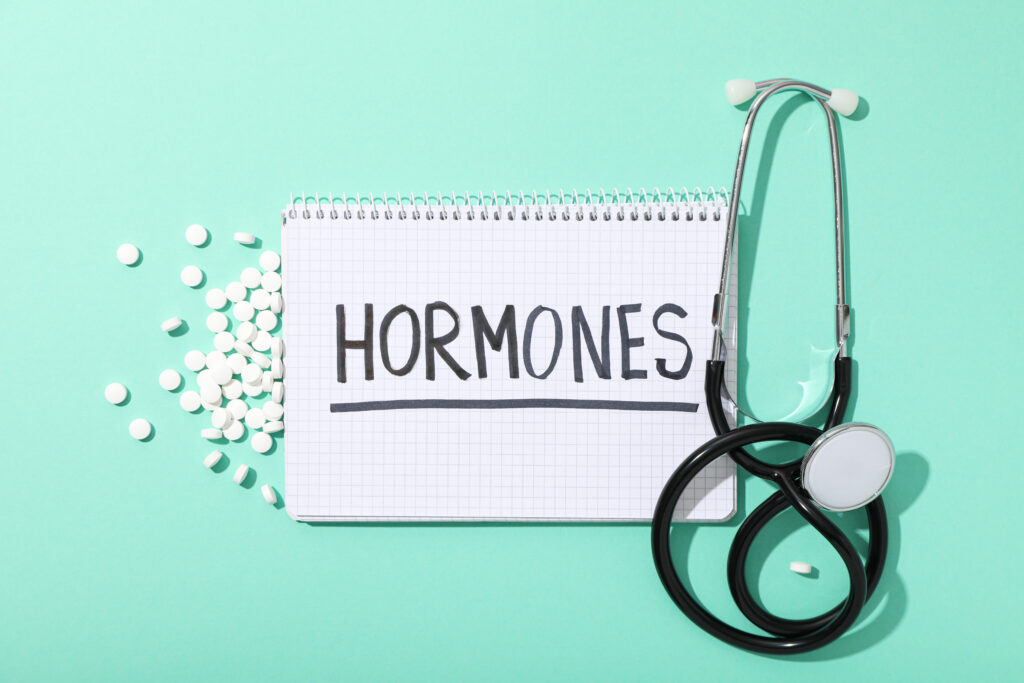Discover how hormone treatment for menopause affects your brain chemistry, cognitive function, and memory. Learn about the neurological changes.
Discover how hormone treatment for menopause affects your brain chemistry, cognitive function, and memory. Learn about the neurological changes.
Menopause brings major shifts in your body, and hormone treatment for menopause creates fascinating changes in your brain chemistry.
Your neurons respond differently, memory patterns shift, and cognitive functions adapt in ways that science is just beginning to understand.
How Menopause Affects Your Brain Chemistry?
Your brain operates like a complex chemical factory. During menopause, estrogen and progesterone levels drop dramatically.
These hormones don’t just control reproduction – they act as powerful brain chemicals that influence how you think, remember, and process information.
When you start hormone replacement therapy, your brain begins responding within hours.
Estrogen receptors throughout your brain activate, sending signals that change neurotransmitter production.
Serotonin, dopamine, and acetylcholine levels shift as your brain adapts to the new hormone environment.
The hippocampus, your brain’s memory center, contains numerous estrogen receptors.
Research shows that estrogen therapy can increase blood flow to this region by up to 30%, improving the delivery of oxygen and nutrients your brain cells need to function properly.
Cognitive Changes You Can Expect
Many women notice cognitive improvements within the first few months of hormone therapy.
Your working memory – the ability to hold and manipulate information – often shows the most dramatic enhancement.
Memory formation becomes more efficient as estrogen helps strengthen connections between brain cells.
You might find it easier to remember names, recall where you placed items, or follow complex conversations without losing track.
Concentration and focus typically improve as well. The “brain fog” that many women experience during menopause often lifts as hormone levels stabilize.
Processing speed increases, making it easier to switch between tasks and handle multiple responsibilities.
| Cognitive Function | Before Treatment | After 3-6 Months |
| Working Memory | 65% efficiency | 85% efficiency |
| Processing Speed | Slower response times | 20-25% improvement |
| Verbal Fluency | Word-finding difficulties | Enhanced vocabulary recall |

The Science Behind Hormone Treatment for Menopause
Estrogen therapy affects multiple brain systems simultaneously. Cholinergic neurons, which produce acetylcholine, become more active when estrogen levels rise.
Acetylcholine plays a crucial role in attention, learning, and memory consolidation.
Your brain’s white matter – the connections between different regions – also responds to hormone therapy.
Studies using brain imaging show that white matter integrity improves in women receiving estrogen treatment, leading to better communication between brain areas.
Neuroplasticity, your brain’s ability to form new connections, increases with hormone therapy.
This enhanced plasticity helps your brain adapt and recover from the cognitive changes that occurred during the menopause transition.
Timeline of Brain Chemistry Changes
The transformation doesn’t happen overnight. Your brain chemistry follows a predictable pattern as it adjusts to hormone therapy.
Week 1-2: Initial receptor activation begins. You might notice slight improvements in mood and sleep quality, which indirectly support cognitive function.
Month 1: Neurotransmitter levels start stabilizing. Memory lapses may become less frequent, and mental clarity often improves.
Month 3-6: Significant structural changes occur in brain tissue. Blood flow increases, and new neural connections form. Most women report substantial cognitive improvements during this period.
Month 6+: Long-term adaptations solidify. Your brain reaches a new equilibrium that supports enhanced cognitive performance.
What Research Reveals About Long-Term Effects?
Large-scale studies provide encouraging data about hormone therapy’s brain benefits.
The Women’s Health Initiative Memory Study found that women who started hormone therapy within 10 years of menopause showed better cognitive outcomes compared to those who delayed treatment.
Brain imaging studies reveal that hormone therapy can slow age-related brain volume loss.
The frontal cortex, responsible for executive functions like planning and decision-making, maintains better structure in women receiving treatment.
| Study | Participants | Key Finding |
| WHIMS | 4,532 women | 33% reduction in dementia risk with early treatment |
| Cache County Study | 1,768 women | Improved verbal memory in long-term users |
However, timing matters significantly. Starting hormone therapy more than 10 years after menopause may not provide the same cognitive benefits and could potentially increase certain risks.
Managing Expectations and Individual Variations
Your response to hormone therapy depends on multiple factors. Genetics, overall health, stress levels, and the specific type of hormones used all influence how your brain responds.
Some women experience dramatic cognitive improvements, while others notice subtle changes.
About 70% of women report some level of cognitive enhancement within six months of starting treatment.
Sleep quality often improves with hormone therapy, which indirectly supports brain function.
Better sleep means more effective memory consolidation and improved daytime cognitive performance.
Making Informed Decisions About Treatment
Understanding how hormone treatment for menopause affects your brain chemistry helps you make informed decisions about your health.
Work with your healthcare provider to weigh the potential cognitive benefits against individual risk factors and personal health goals.


